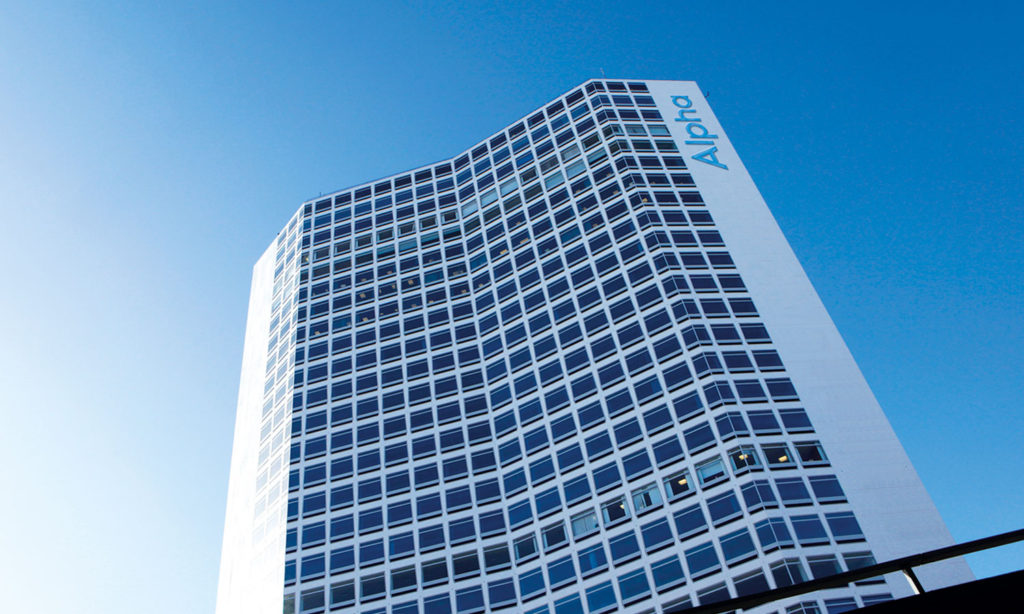Unprecedented growth in visitor economy also sees city’s overnight and overseas tourist numbers double.
Birmingham recorded the highest rate of business growth of any UK city in 2016; with a growth rate double the national average, and higher than London, Manchester and Liverpool.
Birmingham now has more businesses than any other city outside the capital, totalling 39,800; more than Manchester and Cardiff combined. With 9,151 new companies created in the first six months of 2016, Birmingham is also on track to retain its position as Britain’s number one regional city for start-up creation for the fourth consecutive year; with half-year figures already demonstrating 65% of 2015’s total.
The supporting data from StartUp Britain and Marketing Birmingham’s Regional Observatory, demonstrates that high value added sectors – namely across the Business, Professional and Financial Services, life sciences and digital sectors – underpinned the region’s economic surge with business growth focused among these sectors as well as advanced engineering, which showed a significant 25% growth.
Birmingham’s upward growth trend is also reflected in foreign direct investment figures. The Greater Birmingham & Solihull LEP attracted 81 new FDI projects to the region in 2015/2016; with subsequent new job creation amounting to more than any other region outside London. Investor confidence is evidenced from a widened-pool of global brands; Chinese automotive manufacturer Changan, American civil engineering firm Jacobs Engineering, and global technology-centric giants Lombard Risk and Advanced, all making significant investments in the region during 2016. Additionally, Birmingham welcomed PwC as the inaugural investor in its landmark £500 million Paradise scheme, reinforcing Birmingham’s lead as the UK’s largest, fastest-growing BPFS cluster outside the capital city.
Neil Rami, Chief Executive of Marketing Birmingham, commented: “The pace and the scale of economic growth in Greater Birmingham has been significant over the last year. The unprecedented level of new enterprises here is demonstrating how the regions can outclass London as a central hub for innovation, productivity and long-term future prospects.
“Marketing Birmingham and regional partners have been channelling a pro-growth agenda, targeting both established and emerging sectors across the world’s most dynamic economies. Some of the most significant development opportunities in Europe – using HS2 as a catalyst – have fuelled increased interest from key markets including China, the US and the Middle East.”
Mike Payne, Chief Technology Officer of global fintech company Lombard Risk, which invested in Birmingham in 2016, added: “We considered a number of locations across Europe as we looked to further expand Lombard Risk. We decided on Birmingham as we believe this city presents us with an exciting opportunity to build a first-class development centre to support our next generation of products. Birmingham has a number of world-class universities nearby and a rich pool of talented technologists. It was an obvious place for us to invest in.”
Tim Kay, Director at KPMG and Technical and Digital Media lead, said: “Birmingham is a great place to start and build your tech business. With historic strengths in automotive, healthcare and manufacturing, the city provides a foundation of entrepreneurial mind-set, global outlook and willing supply chains, and has the opportunity to carve out a place in the increasingly competitive global landscape.
“Successful start-ups and scale-ups such as School of Code, Vanti and VoxPopMe show that when it comes to nurturing and attracting talent, investment and innovative companies, Birmingham has the ability to flourish across a range of sectors and company sizes.”
John Clancy, Leader of Birmingham City Council, commented: “These figures show conclusively that Birmingham is setting the UK trade agenda despite challenges posed by the decision to leave the European Union.
“I’m particularly pleased to note that economic growth is increasingly focused in high value-added sectors such as health and life sciences, ICT and digital and advanced engineering – the very areas that are crucial if we are to deliver inclusive economic growth for all. Just as Birmingham led the way in the industrial revolution, we are perfectly placed to lead from the front once again”.
The latest data from Marketing Birmingham’s Regional Observatory also reveals unprecedented growth in the region’s visitor economy. The figures demonstrate that both the number of international visitors to the city and overnight stays in Birmingham has doubled over the past three years**, bolstering Birmingham’s standing as a global tourist destination. The proportion of leisure visitors to city has also grown from 45% in 2013 to 76% in 2016.
As a result, visitor expenditure has contributed significantly to the local economy; with £82 spend per head in 2016, up by a third on the figure of £61 recorded in 2013. Contributory events during 2016 have included the England v Pakistan Test Match (3rd-7th August) at Edgbaston Stadium; a calendar of festivals including the Moseley Folk Festival (2nd-4th September); the UK’s biggest games event, EGX at the NEC (22nd-25th September) and a number of cultural events celebrating the anniversary of Shakespeare’s 400th legacy.
2016 has seen Birmingham’s bid to back this global standing, announcing its intention to officially enter the race to host the Commonwealth Games in 2026; which has the potential to generate in excess of £390 million GVA for the local economy, creating thousands of jobs.
